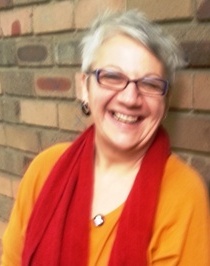 An Indigenous Charles Sturt University (CSU) student said her participation at a recent conference showed her social work is 'politics with soul'.
An Indigenous Charles Sturt University (CSU) student said her participation at a recent conference showed her social work is 'politics with soul'.
Ms Julieann Hall is an Aboriginal mental health trainee who works for NSW Health in Broken Hill and is studying a Bachelor of Health Science (Mental Health) with the CSU School of Nursing, Midwifery and Indigenous Health by distance education as part of the Djirruwang Program at CSU in Wagga Wagga. She is also an Australian Association of Social Workers (AASW) Reconciliation Action Plan taskforce member.
Ms Hall said the scholarship she received from the AASW to attend the Joint World Conference on Social Work, Education and Social Development in Melbourne opened her eyes to the global context of the discipline.
"I understand more now, from a world perspective, that the issues, concerns and advocacy we do is all relative and occurs at every corner of the globe," Ms Hall said.
"The presentations I attended were selected on the basis that they connected with both the work I do and will do. These plenary sessions gave me a world-view on social work and social workers need to acknowledge what is happening around the globe.
"In all the research that academics do, it is important not to forget the core values of social work and engagement; we must do more at the 'coal face' and 'on the red dirt' within our own communities."
Ms Hall said she greatly appreciated the opportunity to attend the conference and meet inspiring social workers, clinicians, and academics who advocate continuously for Indigenous people.
"The conference gave me the chance to make new connections and some, I think, will be lifelong friends and colleagues," she said.
"One particular public lecture, 'Strong communities, strong futures: strengthening social and cultural wellbeing', posed some valuable questions about making equity more of a reality for Indigenous Australians. The core question is why are we still 'disadvantaged'?
"To answer that question requires taking stock of the true extent of inequalities between Aboriginal and Torres Strait Islander people and other Australians. The gaps are most visible in life expectancy, infant and child mortality, early childhood education, literacy and numeracy, school completion rates, and employment.
"I believe early intervention is the key to strengthening communities, and as an AASW Reconciliation Action Plan taskforce member I will always advocate for cultural competency within all that I do. It is a combination of what we know, what we want to know, and what we can pass on.
"Cultural competency becomes an integral part of a continuous learning process, and is a lifelong journey, not a destination, and it varies from moment to moment and from situation to situation."
Ms Hall expects to graduate at the end of 2017.





Social
Explore the world of social